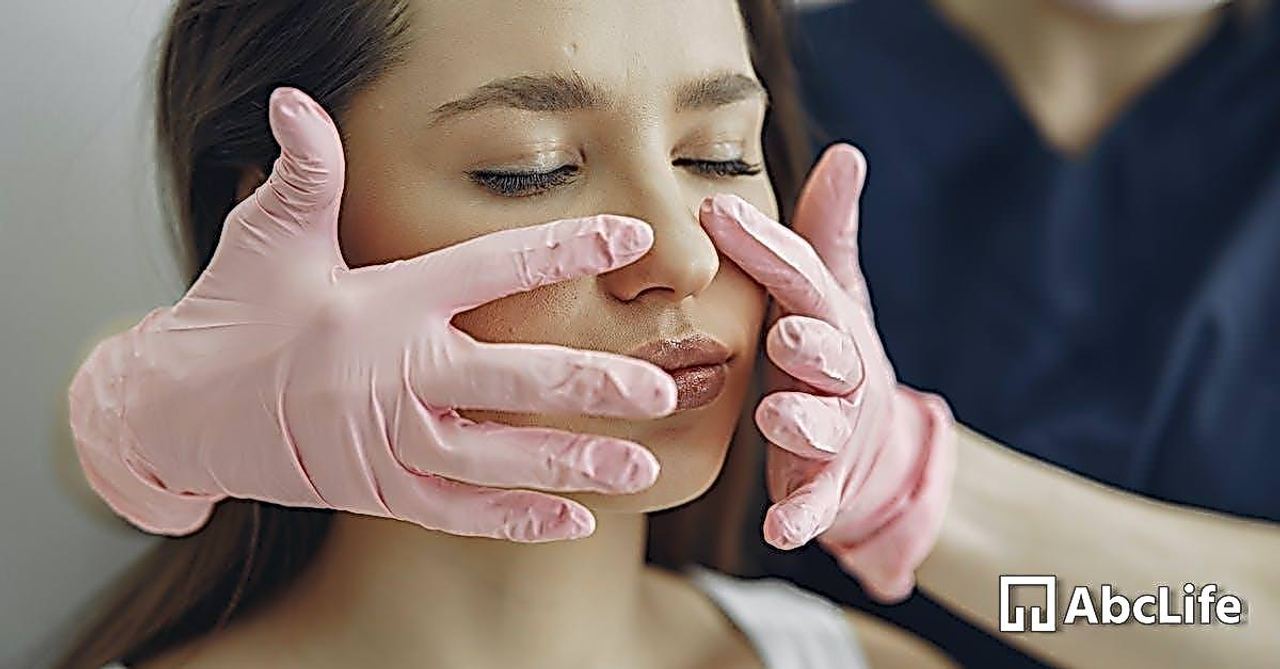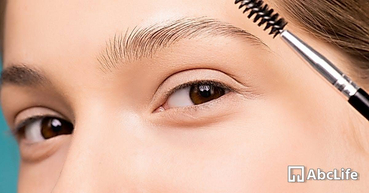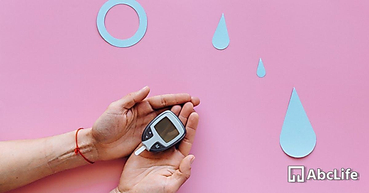Everyone desires a healthy, glowing complexion! However, with so many skin care products and tips available, it can be difficult to determine which ones are effective. Fortunately, there are a few skin care techniques that have been shown to promote healthy skin and a radiant complexion.
In this article, we'll go over the top five skin care tips for a healthy, glowing complexion. We've got you covered on everything from the importance of sunscreen to the advantages of a healthy diet.
Whether you have acne, dry skin, or simply want to keep your skin looking young, these tips will help you achieve the healthy, glowing complexion you've always desired.
Protect Your Skin from the Sun

The sun's rays can cause skin damage, resulting in premature aging, sunburns, and even skin cancer. When spending time outside, it is critical to take precautions to protect yourself from the sun's harmful rays.
The first step in sun protection is to apply sunscreen to your skin. Apply a broad-spectrum sunscreen with an SPF of at least 30 before going outside. Reapply every two hours or after swimming or sweating.
Wearing protective clothing such as long-sleeved shirts and hats with a wide brim to shade your face, neck, and ears is also important. Avoid spending time outside during peak sun hours, which are typically between 10 a.m. and 4 p.m. Finally, keep in mind that even on cloudy days, the sun's UV rays can still harm your skin, so take precautions regardless of the weather.
Maintain A Consistent Skin Care Routine

Establishing a consistent skin care routine is one of the most important things you can do for your skin. This entails taking care of your skin every day, no matter how busy or tired you are. A regular skin care routine will assist in keeping your skin healthy, glowing, and looking its best.
Choosing products that are tailored to your specific skin type and needs is the key to maintaining a consistent skin care routine. This may require some trial and error to find the best products for you. Once you've discovered the products that work best for your skin, it's critical to use them on a regular basis and in the correct order.
Cleaning, toning, moisturizing, and sun protection are some basic steps to include in your skin care routine. These steps can help keep your skin clean, hydrated, and safe from the sun's harmful UV rays. Drink plenty of water, eat a healthy diet, and get plenty of sleep to promote healthy skin from the inside out.
Choose Skin Care Products Wisely
Choosing skin care products can be overwhelming and confusing, especially with so many options available. However, before making any purchases, it is critical to consider the ingredients as well as your skin type.
Begin by determining whether your skin is oily, dry, or a combination of the two. This information can assist you in selecting the best products for your skin. Consider the ingredients in the products you're considering purchasing. Avoid chemical ingredients that can harm your skin in favor of natural ingredients such as aloe vera, tea tree oil, and shea butter, which are excellent for hydrating and nourishing the skin.
Furthermore, it is critical to read the product labels and understand what they do. For example, if you're looking for anti-aging products, look for retinol and vitamin C, both of which have been shown to reduce wrinkles and fine lines. Similarly, if you want to reduce dark spots and hyperpigmentation, look for products that contain hydroquinone or kojic acid, both of which are well-known to work.
Investing in quality skin care products should be a top priority. Don't be tempted by low-cost products that may end up harming your skin in the long run. Instead, choose high-quality products that contain natural, nourishing ingredients that are gentle on your skin.
Nourish Your Skin from the Inside Out
Having a healthy and glowing complexion is dependent not only on what you put on your skin, but also on what you eat. Here are some suggestions for nourishing your skin from the inside out:
1. Hydrate
Staying hydrated is one of the best things you can do for your skin. Drinking plenty of water aids in the removal of toxins and the maintenance of plump, radiant skin.
2. Eat a balanced diet
A healthy skin requires a well-balanced diet rich in vitamins, minerals, and antioxidants. Skin-friendly foods include leafy greens, berries, nuts, and fatty fish. Processed foods and sugary drinks, which can cause inflammation and breakouts, should be avoided.
3. Get enough sleep
Sleep deprivation can result in dull, tired-looking skin. Get enough sleep each night to allow your skin to repair and regenerate.
4. Manage stress
Stress can be bad for your skin, causing acne, wrinkles, and dullness. Self-care and stress-management techniques such as meditation, yoga, and mindfulness can help your skin look healthy and vibrant.
5. Protect your skin from the sun
UV exposure can cause skin damage and premature aging. Wear sunscreen and avoid prolonged sun exposure, especially during peak hours, to protect your skin.
You can nourish your skin from the inside out and achieve a healthy, glowing complexion by incorporating these tips into your daily routine.
Get Plenty of Sleep and Manage Stress
Getting enough sleep and managing stress are two important factors in achieving a healthy and glowing complexion. Sleep deprivation can cause dark circles, puffy eyes, and a dull complexion, while stress can cause acne breakouts and hasten the aging process.
Aim for 7-9 hours of quality sleep each night to ensure you're getting enough sleep. Maintain a consistent sleep schedule, avoid caffeine and alcohol before bedtime, and develop a relaxing bedtime routine to aid in relaxation.
In addition to getting enough sleep, stress management is essential for healthy skin. Inflammation in the body caused by stress can lead to skin problems such as acne, rosacea, and eczema. In order to manage stress, try incorporating relaxation techniques into your daily routine, such as yoga, meditation, or deep breathing exercises. Self-care activities include taking a warm bath, getting a massage, and spending time in nature.
You'll be doing your skin a favor and on your way to a healthy, glowing complexion if you prioritize sleep and stress management.
Exfoliate Regularly to Remove Dead Skin Cells
Exfoliating is the process of removing dead skin cells from the skin's surface. Dead skin cells can accumulate, making the skin appear dull and rough. Exfoliating on a regular basis is essential for maintaining a healthy and glowing complexion.
Exfoliators come in a variety of forms, including scrubs, acid-based exfoliators, and enzyme-based exfoliators. Scrubs are physical exfoliants that contain small particles that remove dead skin cells manually. Acid-based exfoliators dissolve dead skin cells by using chemical exfoliants such as alpha-hydroxy acids (AHA) or beta-hydroxy acids (BHA). Natural enzymes, such as papaya or pineapple, are used in enzyme-based exfoliators to break down dead skin cells.
It is critical to select the appropriate exfoliator for your skin type and to carefully follow the instructions. Excessive exfoliation can harm the skin and cause irritation. Exfoliating once or twice a week is generally recommended, depending on your skin type and the product you're using. You can reveal smoother, brighter, and more youthful-looking skin by incorporating exfoliation into your skincare routine on a regular basis.
Stay Hydrated for Healthier Skin
Water is necessary for a healthy body, but did you know it also helps to keep your skin healthy and glowing? Dehydration can cause dry skin, wrinkles, and other cosmetic issues. As a result, staying hydrated requires drinking plenty of water.
The general recommendation is to consume at least eight glasses of water per day. However, depending on your activity level, diet, climate, and overall health, your body's water requirement may vary. If you don't like plain water, you can flavor it by infusing it with fruits, vegetables, or herbs. Alternatives to water include coconut water, green tea, and smoothies.
Aside from drinking plenty of water, you can improve your skin's hydration by using a hydrating moisturizer, avoiding hot showers and baths, limiting your caffeine and alcohol intake, and eating water-rich foods like cucumber, watermelon, lettuce, and oranges. You can achieve a healthy, radiant complexion by staying hydrated on the inside and out.
Avoid Habits that Damage Your Skin
Having healthy skin requires more than just a good skincare routine. It also entails avoiding habits that are harmful to your skin. Here are some common skin-damaging habits and how to avoid them:
1. Smoking
Tobacco use results in wrinkles, dullness, and premature aging. Tobacco in cigarettes constricts blood vessels in the skin's outermost layers, reducing blood flow and depleting the skin of oxygen and nutrients. To avoid skin damage, quit smoking or avoid being around smokers.
2. Not Removing Makeup Before Bed
Sleeping with makeup on clogs pores, resulting in breakouts and dullness. Always remove your makeup before going to bed and follow up with a moisturizer to keep your skin hydrated overnight.
3. Over-Exfoliating
Exfoliating on a regular basis is necessary to remove dead skin cells and unclog pores, but doing so excessively can cause skin irritation and damage. Always use gentle exfoliants and limit exfoliation to twice a week.
4. Not Drinking Enough Water
Water is essential for keeping your skin hydrated and healthy. Drinking too little water can cause your skin to become dry, flaky, and prone to wrinkles. To keep your skin glowing and healthy, drink at least 8 glasses of water per day.
5. Not Wearing Sunscreen
Sun exposure can cause premature aging, wrinkles, and sunspots, as well as increase the risk of skin cancer. Even on cloudy days, wear sunscreen with an SPF of at least 30 and avoid excessive sun exposure.











